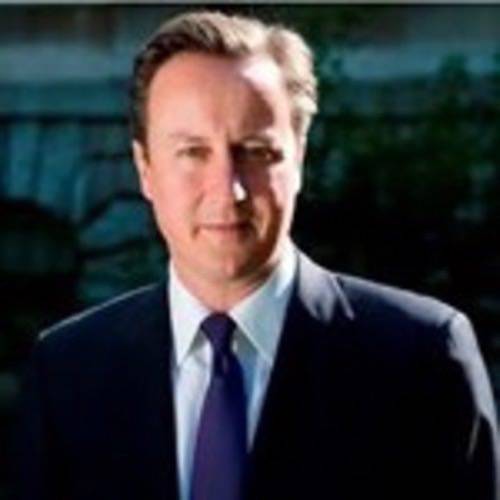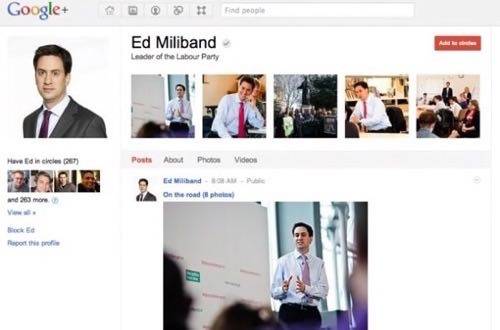David Cameron, the prime minister of the United Kingdom, who made comments in the wake of last month’s nation-wide riots about the possibility of blocking participants in civil unrest from using social media, has joined Google’s new social network, Plus. Joining him this morning were +Ed Miliband and +Nick Clegg (as they are referred to on Google’s site), leaders of the Labor and Liberal Democrat party.

Cameron’s remarks about discussing the possibility of blocking social networks at times of unrest were widely criticized as either a balloon being floated for dictatorial contro, an appeasement of angry critics of social networks or simply heavy-handed. Others said it was simply a matter of putting a widely discussed idea on the table. When the city of San Francisco shut off cell phone service in its transit system in order to prevent organizers of a protest against police brutality from using their mobile devices to organize – that made the whole matter feel much more serious.
An hour after joining, Cameron’s account has been officially verified by Google and welcomed to the service by Plus leader Bradley Horowitz. Cameron has made one post, has just under 200 people who have followed him and has a smattering of supportive and hostile comments posted.
A number of the hostile comments focus on Cameron’s comments about shutting off access to social media. UK blogger Paul Sawers wrote a post about the debate several weeks ago that offered more details but was sympathetic to the perspective that Cameron was merely saying the matter ought to be discussed. Presumably critics believe that the matter of shutting off access to new methods of free speech is not something that should ever be on the table for discussion. To be fair, it probably wouldn’t matter how new, cool and important shouting was either, you’d still be hard pressed to shout fire in a crowded theatre.
Cameron’s joining Plus doesn’t feel the same as when George Bush joined Facebook a year ago this Summer but in the form of a Facebook Page. That meant only people who said they “Liked” the page (and sent that message out to the newsfeed of all their friends) could post a comment in response to the controversial ex-President. That felt like a mini-loyalty oath that had to be taken, even though it was just a standard feature of Facebook. It’s usually just a loyalty oath to a corporate brand that’s required to comment on a page.
Below: Who’s that handsome Plusser? It’s Ed Miliband, Leader of the UK Labour Party and owner of another verified Plus account.

Will the UK leaders, or rather their social media handlers, find value in Plussing? Time will tell. It’s a smaller and far less known social network than Facebook or Twitter, but it does offer some things those don’t. It’s not clear that those unique features and feel for the site are going to prove exciting enough for Plus to gain meaningful adoption, though. Politicians on the site may or may not help with that.
Early analysis indicates that Plus may be catching on the fastest in Asia and Latin America, not in the US or the UK.
Disclosure: Google Plus has included the author in its Suggested User List for new accounts to follow. While that’s an honor, it should be noted that it also confers potentially significant benefits to me and could influence my judgement in discussing the service.
















